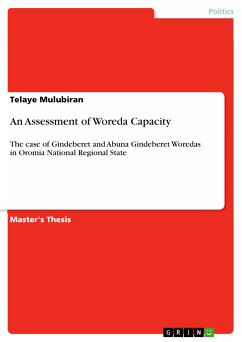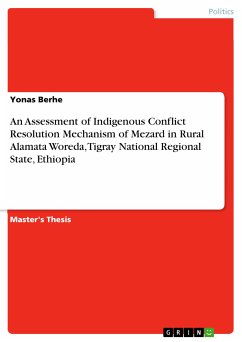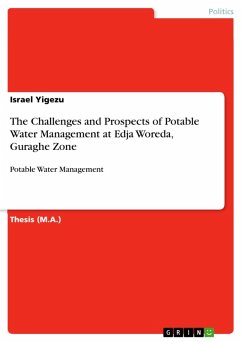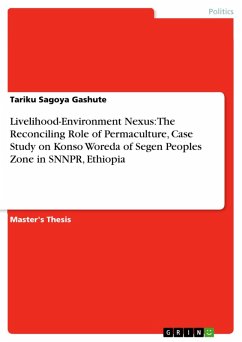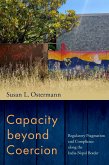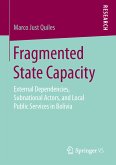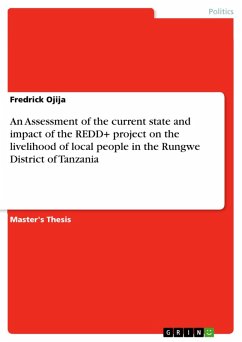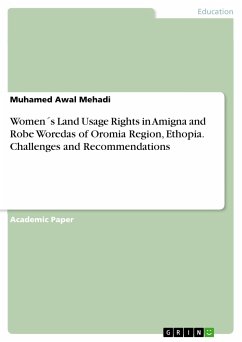Master's Thesis from the year 2012 in the subject Politics - Topic: Development Politics, grade: Very good, Addis Ababa University (College of Business and Economics), course: Public Administration and Development Management, language: English, abstract: This research assesses woreda capacity in Gindeberet and Abuna Gindeberet Woreda of West Shoa Zone Oromia National Regional State since the implementation of District Level Decentralization Program. To this end, the research has assessed the human resource, financial, managerial, facility capacity as well as the extent to which enabling work environment and community participation is available. In order to achieve these objectives, qualitative and quantitative research approaches were used. Furthermore, to generate qualitative and quantitative data primary and secondary sources were employed. Key informant interview, questionnaires, and focus group discussions were used as primary sources whereas financial and human resource reports and other relevant documents were used as secondary sources. Both probability and non-probability sampling techniques were employed. The finding of the study indicated that the capacity building program which was launched to address the problem of rural woredas has not brought about significant changes or could not bring about the desired change though there are some improvements in terms of community participation, service delivery and responsiveness to customers. It has also empowered woreda civil servants to provide decisions on their own. However, constraints of resources and its utilization, lack of conducive work condition, lack of strong political leadership and commitment, and lack of governance system have been identified as factors responsible for the ineffectiveness of the program. Accordingly, the study found out among other things, problem of adequate and competent human resources as well as lack of managerial capacity. Furthermore, woredas have limited financial and human resource autonomy as well as lack autonomy to set priority and targets. Besides, low revenue generating capacity has forced woredas to heavily rely on block grant from the regional government. Moreover, the overall work environment was not conducive and attractive as inter alia organizational structures were unclear, unstable and complex as well as there was weak coordination and communication among local governance actors. The level of the participation of the community in matters affecting their life was found not to the desired level. [...]
Dieser Download kann aus rechtlichen Gründen nur mit Rechnungsadresse in A, B, BG, CY, CZ, D, DK, EW, E, FIN, F, GR, HR, H, IRL, I, LT, L, LR, M, NL, PL, P, R, S, SLO, SK ausgeliefert werden.

